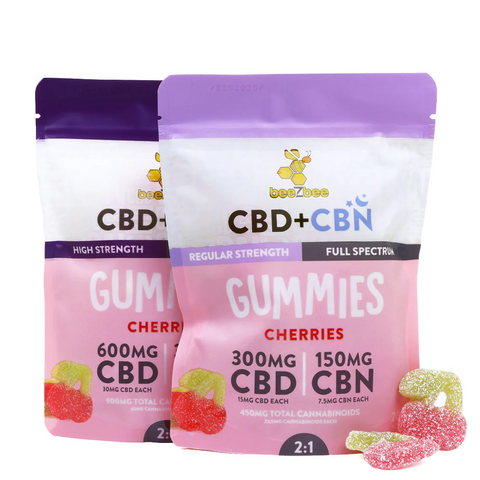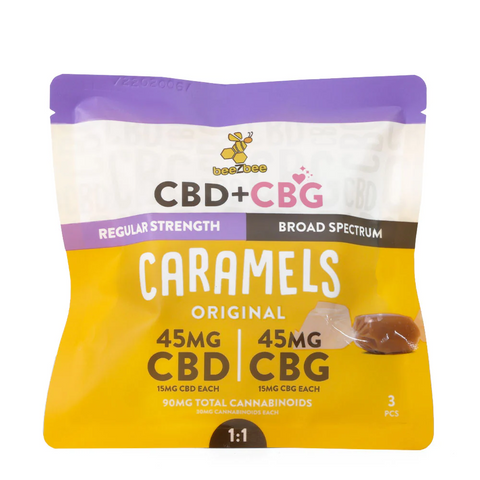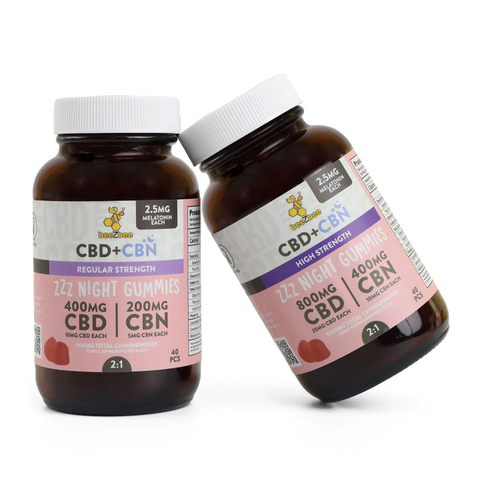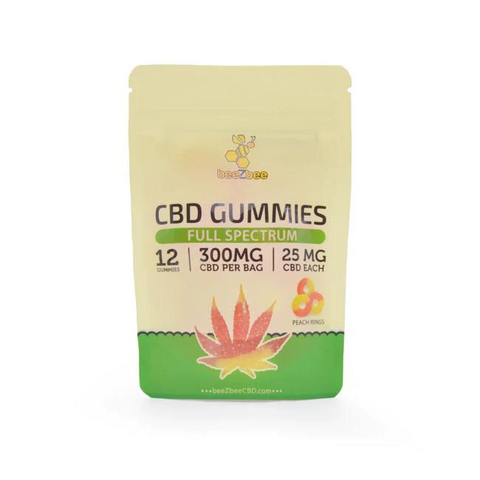
In recent years, CBD (cannabidiol) has emerged as a popular choice for natural well-being. Nevertheless, it's essential to recognize that CBD is just one among over 100 cannabinoids present in the cannabis plant, with CBD and THC being the most renowned.
Two other noteworthy cannabinoids are CBG (cannabigerol) and CBN (cannabinol), both of which are non-psychotropic and may offer potential wellness advantages. Despite not enjoying the same level of recognition as CBD or THC, CBG and CBN may be gaining attention for their potential long-term health benefits.
Nevertheless, numerous compounds obtained from the hemp plant are believed to possess strong attributes. Similar to CBD, these alternative cannabinoids have gained federal legalization under the 2018 Farm Bill. With evolving regulations, there is a probable increase in the availability of multi-cannabinoid products as further investigations explore the healing potential of hemp. This article aims to provide a comprehensive overview of CBN vs CBG, exploring their potential effects and legal status.
What is CBN?

While CBD, it's more widely recognized counterpart, enjoys widespread prominence, cannabinol (CBN) holds the distinction of being the first discovered cannabinoid. Researchers first encountered CBN in the late 1800s, and its successful laboratory synthesis took place in the mid-1940s.
In contrast to many other cannabinoids, CBN hemp flower does not occur naturally in living hemp plants. Instead, it originates from the degradation of THC when cannabis plants are exposed to light or heat. The concentration of CBN in a plant increases as it ages and dries, with young and freshly harvested hemp plants typically containing only trace amounts, often insufficient for harvesting.
CBN possesses mild psychotropic properties, approximately a quarter as strong as THC. When combined with other sleep-inducing herbs, it may exhibit calming qualities, making it increasingly favored among individuals. Additionally, CBN may also offer potential benefits such as stimulating bone growth, providing pain relief, reducing inflammation, and acting as an immunosuppressant.
In comparison to CBD products, CBN is present in much smaller amounts, potentially contributing to its relative anonymity among users seeking the best remedy.
What is CBG?

Constituting less than 1% of the cannabis plant, Cannabigerol (CBG) is a rare compound that poses challenges in synthesis compared to other cannabinoids. This scarcity contributes to the higher cost of CBG products compared to other hemp-derived remedies, leading to its relative obscurity compared to CBN or CBD. Despite this, CBG exhibits unique properties deserving further exploration.
Discovered in a laboratory in 1964, CBG's significant feature lies in its interaction with the endocannabinoid systems (ECS). Unlike THC, which affects receptors with psychotropic effects, CBG lacks psychotropic properties. This non-psychotropic nature may enhance its viability as a medical treatment, reducing the risk of habit formation or dependence.
A comparison of CBD vs CBN vs CBG reveals more similarities than differences. However, CBN and CBG distinguish themselves by their potential neuroprotective properties. While further research is required to fully understand benefits of CBG products.
Best Benefits of CBN
CBN, meaning cannabinol, offers a range of potential benefits, making it an increasingly popular compound in the world of cannabinoids. Known for its potential properties, CBN may aid in promoting relaxation and sleep. Additionally, it may exhibit anti-inflammatory and analgesic effects, potentially helping with pain management.
Some studies suggest CBN oil benefits stimulate bone cell growth, making it potentially beneficial for bone health. Furthermore, CBN products may possess neuroprotective properties, contributing to brain health. As research on cannabinoids advances, the effects of CBN stand out for its diverse potential, offering the best alternative for individuals seeking relief from various health concerns.
Best Benefits of CBG
CBG oil benefits may have anti-inflammatory effects, which are associated with inflammation, such as arthritis and inflammatory bowel diseases. Some studies suggest that CBG may have neuroprotective properties, potentially aiding in the protection of nerve cells. This could be relevant in conditions like Huntington's disease or neurodegenerative disorders.
CBG may have demonstrated antibacterial and antifungal properties in some studies. This suggests potential use in fighting microbial infections. Research indicates that CBG might help reduce intraocular pressure, which could be beneficial for individuals with glaucoma.
Some preclinical studies have suggested that CBG might inhibit the growth of certain cancer cells. CBG has shown promise in preclinical studies for managing symptoms associated with inflammatory bowel diseases, such as ulcerative colitis and Crohn's disease.
It's crucial to consult with a healthcare professional before using CBG or any other cannabinoids, especially if you have pre-existing medical conditions or are taking medications. Additionally, legal and regulatory considerations regarding cannabis products vary by location.
CBN vs. CBG: Key Similarities and Differences

These two lesser-known cannabinoids, cannabigerol (CBG) and cannabinol (CBN) have not garnered as much attention as CBD in the media or scientific studies. Consequently, comparing them to each other is more challenging than comparing either one to cannabidiol.
The enactment of the Farm Bill has provided creators and retailers of herbal medicine with more flexibility to explore the properties of CBG and CBN. Anecdotal evidence from natural remedy users suggests potential similarities and differences between the two cannabinoids.
Similarities:
The comparison between CBN, CBD, and CBG has mainly focused on their extraction ease and their effectiveness in treating various symptoms. In the CBG vs CBN analysis, it becomes evident that these cannabinoids share similar percentages within the hemp plant. Both are rarer than CBD, making them more costly to distill and contributing to their relative obscurity compared to their more popular counterparts.
CBN vs. CBG also exhibit similarities in treating certain symptoms. Notably, both may have potential for pain relief, especially when combined with other cannabinoids. Additionally, both may reduce inflammation, providing substantial relief for conditions like irritable bowel syndrome.
Another commonality is the limited scientific study on CBG and CBN in controlled settings. The complexity and cost of extracting these cannabinoids compared to cannabidiol have hindered extensive research.
However, with the Farm Bill's passage and increased interest in cannabinoids, a growing appreciation for the distinct benefits of CBG and CBN is emerging. As these cannabinoids undergo more intensive study, further evidence distinguishing CBN vs CBD vs CBG is likely to surface.
Differences:
The primary distinctions between CBG and CBN lie in the potential conditions they might treat and the observed side effects with regular use. CBG effects show promise in potentially helping with brain disorders, notably Huntington's disease, and exhibit potential antibacterial properties. Conversely, CBN effects have the potential to stimulate bone growth, particularly in patients affected by aging and osteoporosis. CBN may also demonstrate more significant promise as strong compared to CBG, particularly when combined with other cannabinoids like THC and CBD.
The Legal Status and Availability of CBN vs. CBG

Legal Status: CBN vs CBG
To begin with, on a federal level in the U.S., both CBN and CBG enjoy legality, courtesy of the 2018 Farm Bill, which sanctioned hemp and its derivatives, except for THC exceeding a 0.3% concentration. However, navigating the landscape of federal and state laws can be as unpredictable as the relationship between cats and cucumbers.
Some states exhibit caution towards CBN due to its relation to THC, unlike CBG, which is non-psychotropic and unrelated to THC, making it generally more widely accepted and subject to less legal scrutiny.
Product Availability
Obtaining CBN and CBG products has become increasingly convenient with the surge of online marketplaces and local dispensaries. A diverse array of products, from tinctures, and oils, to gummies, is readily accessible.
However, not all hemp products are of equal quality. It is crucial to purchase from reputable sources providing third-party lab tests to ensure product safety.
Authenticity Verification
Ensuring the authenticity of CBN and CBG products involves a few key considerations. One essential factor is third-party lab tests, also known as Certificates of Analysis (COAs).
Respected brands consistently subject their products to independent lab testing to confirm cannabinoid content and the absence of harmful contaminants. Access to these COAs, often available on the brand's website, is vital.
Additionally, details on the extraction method used matter. CO2 extraction, recognized as the gold standard, helps preserve cannabinoid integrity, yielding a cleaner product.
In summary, while the legal nuances of CBN and CBG may pose challenges, acquiring these products is generally straightforward. Vigilance and thorough research are essential to ensure the purchase of high-quality, authentic products.
Final Thoughts

CBN or CBG exist in limited quantities within the cannabis plant, making them less prevalent as individual products. Instead, they are commonly integrated into full spectrum CBD products like oils, tinctures, and topicals.
Premium CBD products typically include trace amounts of CBG and CBN, alongside CBD and various other cannabinoids. Unlock the potential of CBG and CBN with beeZbee innovative product line including oils, gummies, tinctures, and many more. Start your self-care journey and embrace the holistic goodness of cannabinoids here.
However, it's worth noting that the availability of CBG and CBN products can be inconsistent, potentially making them more challenging to locate compared to CBD. Consequently, these products may be pricier when compared to cannabinoids that are more readily available in higher concentrations.
Moreover, the quality and purity of CBN vs. CBG products can vary significantly. Therefore, thorough research is essential when selecting a reputable CBD brand that offers pure CBD oils and products.
